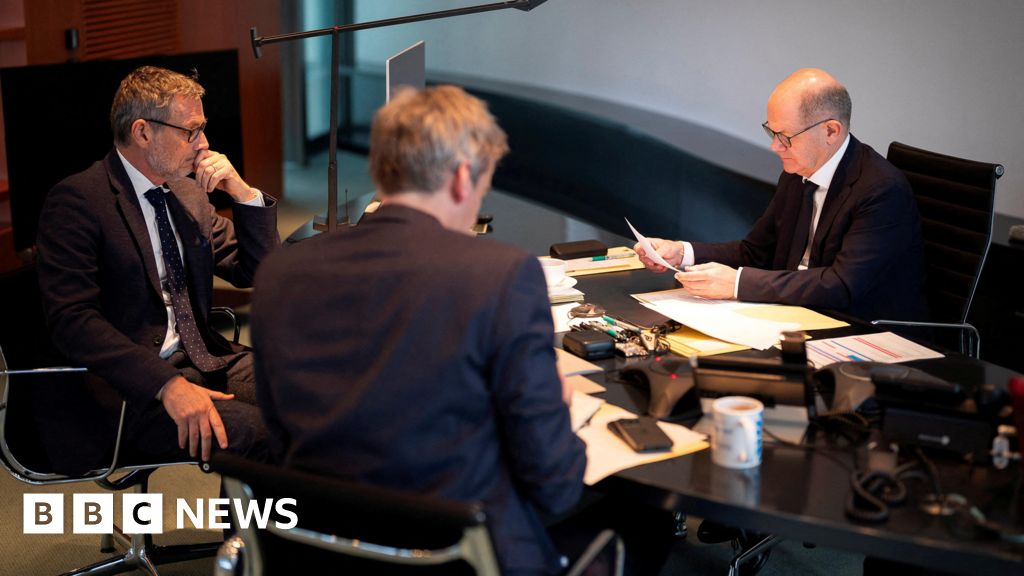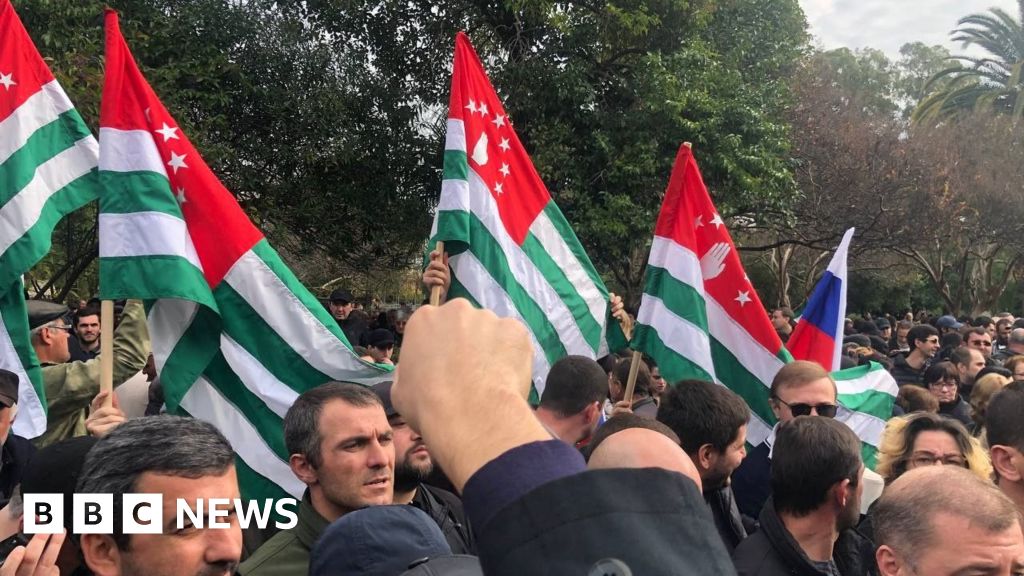ARTICLE AD BOX
Image source, AFP via Getty Images
Image caption, Thousands of people have been killed in the warAll sides in Ethiopia's Tigray conflict have violated international human rights, some of which may amount to crimes against humanity, a new report states.
A joint investigation by the Ethiopian Human Rights Commission (EHRC) and the UN Human Rights Office said there could also be evidence of war crimes.
The war broke out on 4 November 2020.
It started when Ethiopian Prime Minister Abiy ordered an offensive against regional forces in Tigray.
UN High Commissioner for Human Rights Michelle Bachelet said the conflict had been marked by extreme brutality and called for a lasting ceasefire.
The report details a series of violations and abuses, including unlawful killings and extra-judicial executions, torture, sexual and gender-based violence, violations against refugees and forced displacement of civilians.
"There are reasonable grounds to believe all parties to the conflict... either directly attacked civilians and civilian objects, such as houses, schools, hospitals, and places of worship, or carried out indiscriminate attacks resulting in civilian casualties and destruction or damage to civilian objects," the report states.
Unlawful or extrajudicial killings and executions have also been recorded.
The report details how a Tigrayan youth group known as Samri killed more than 200 ethnic Amhara civilians in Mai Kadra in November last year. Revenge killings were then committed against ethnic Tigrayans in the same town.
Members of the Eritrean Defence Force (EDF) killed more than 100 civilians in Axum in central Tigray later that month, the report says.
"War crimes may have been committed since there are reasonable grounds to believe that persons taking no direct part in hostilities were wilfully killed by parties to the conflict," the report says.
It also cites cases of sexual violence including gang rape, and calls on the Ethiopian government to conduct "thorough and effective investigations by independent and impartial bodies into allegations of violations and to hold those responsible accountable".
Prime Minister Abiy said he ordered the military offensive last November in response to an attack on a military base housing government troops there.
The escalation came after months of feuding between Mr Abiy's government and leaders of the TPLF, which was the dominant political party in Tigray.
The authorities later labelled the TPLF a terrorist organisation and ruled out any peace talks with them.
The federal government's renewed ground offensive in recent weeks, including using airstrikes, has failed to halt the rebels' territorial gains.
More on the Tigray crisis:

 3 years ago
37
3 years ago
37








 English (US)
English (US)